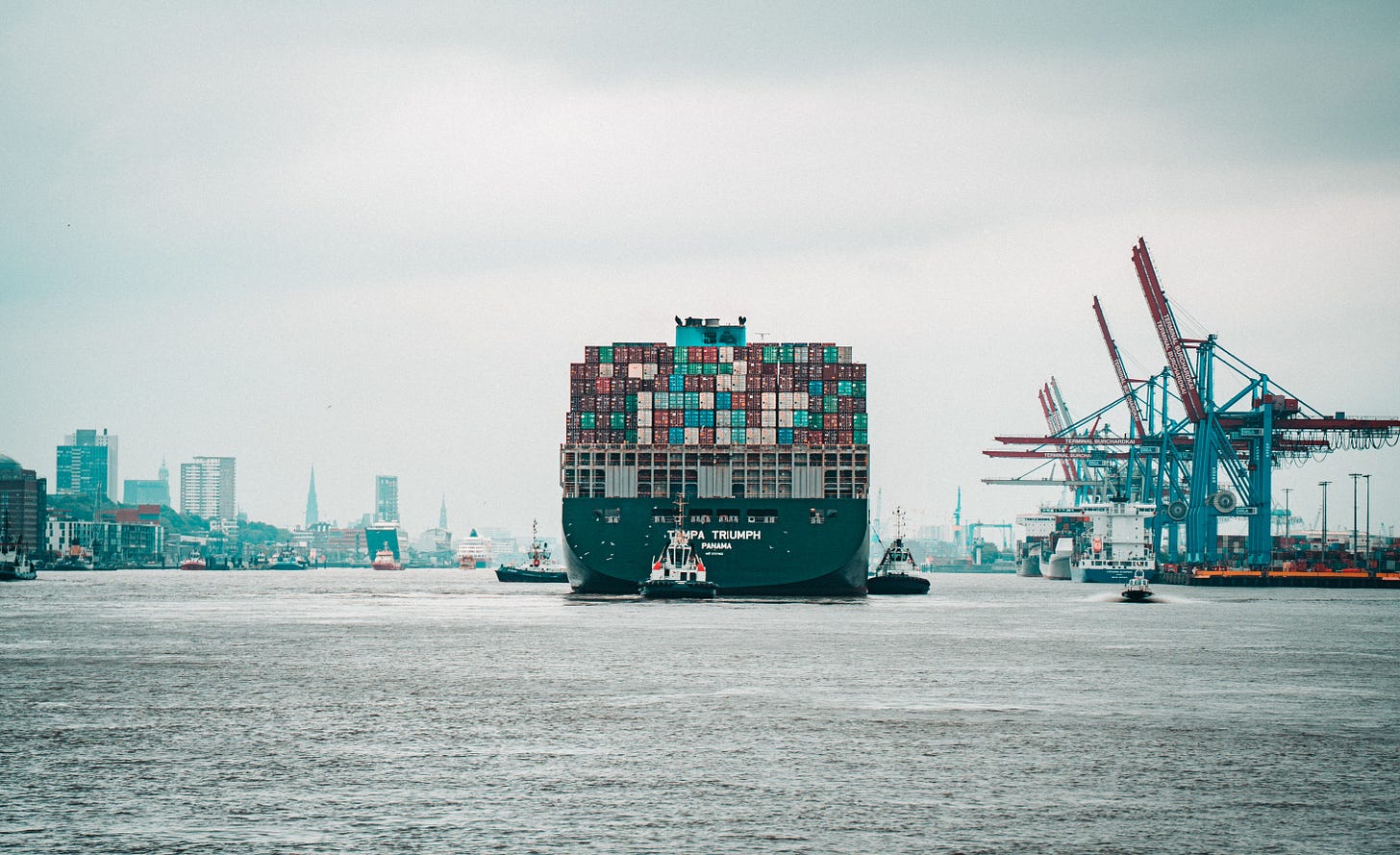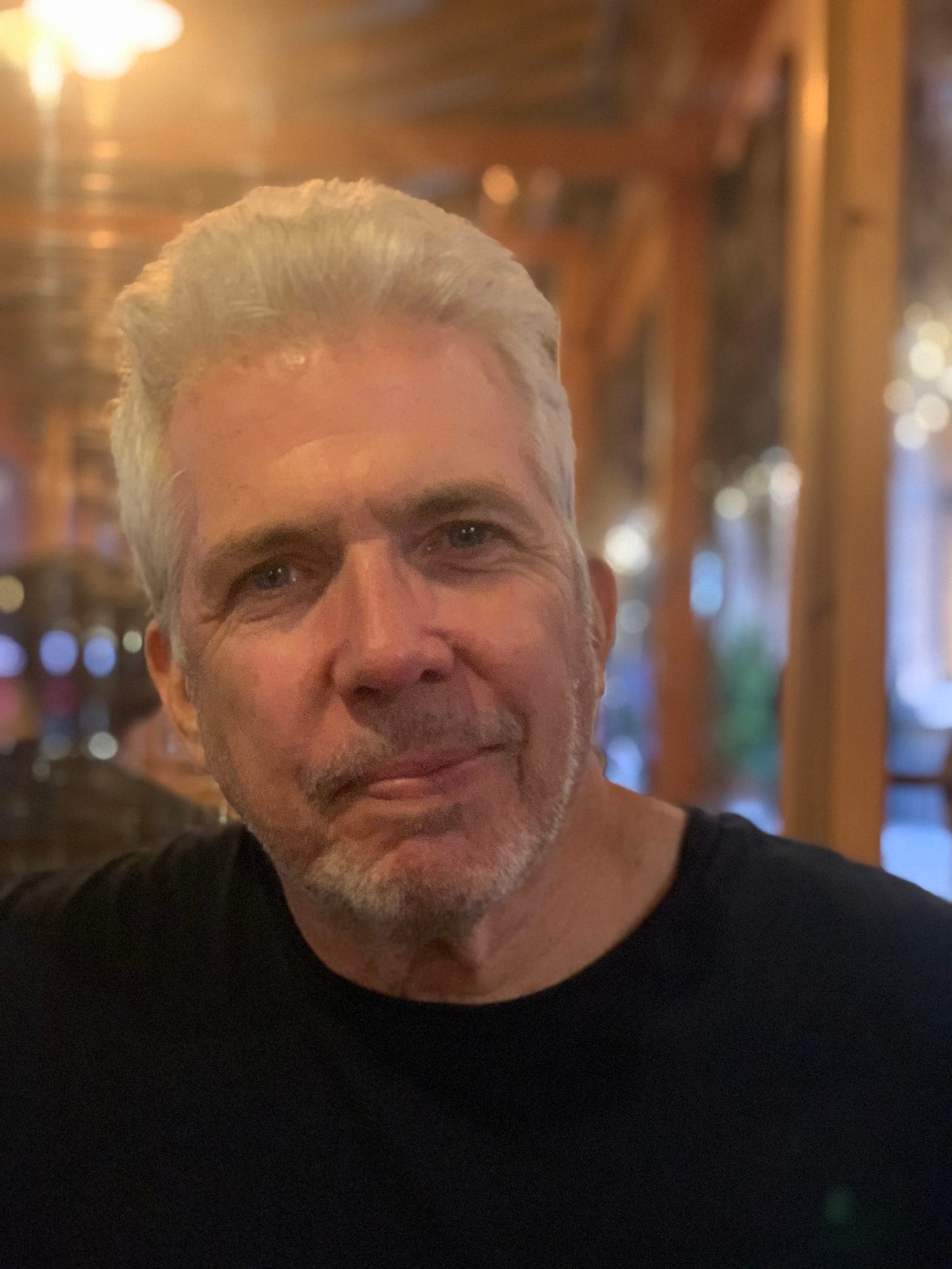The aging supply chain
(No. 92) I thought artificial intelligence would have saved us by now, by Stephen P. Williams
A container ship loaded with goods. Photo by Mika Baumeister on Unsplash
Count to 100 before you buy. Then ask, Do I really want this?
The pandemic, war and global mistrust have led to a worldwide shortage of computer chips, auto parts and other goods. The price of flour has risen 50 percent over last year, putting incredible pressure on restaurants and food producers, and affecting anyone who eats bread, cake or chicken fried steak. And some supply chain issues affect older people more than others. Here is an extensive list of medical items that hospitals have trouble finding now, due to global supply chain disruptions. The shortages have hit everything from the tubes and bottles used to collect specimens to be tested to the ventilators that allow certain patients to breathe.
The term “black swan event” refers to a rare confluences of forces that disrupt normal political, social or economic patterns. “We used to occasionally have black swan events,” said Richard Wilding, a professor of supply chain strategy at Cranfield School of management in the UK, in an interview in in Wired Magazine. Now, he says, we’re facing a whole bank of black swans. (Not sure why, but a group of swans is called a bank, not a flock.)
According to Wilding, managing a supply chain used to involve processes that were 80 percent predictable and 20 percent full of surprises. Now those percentages have flipped. Signs are that we are headed for more supply chain and other disruptions.
We all are integral to the supply chain, even if we’re just the end purchasers. Our choices affect what is produced, and how it is distributed. Now, more than ever, older people have the power to shape what products they are offered.
The world’s resources are amazingly rich, still, after a few hundred years of devastating exploitation. Yet the extractive economy — based on oil, which is used to make almost all of the plastic we use, and throw away, gas, minerals and other natural resources — offers us a seemingly limited amount of goods. But extracting these resources come with all kinds of added costs, from water pollution to the exploitation of human labor.
When we plan for our retirement, or our working futures as older people, we can think about what we really need — housing, for sure, convertible sports cars, maybe not — and avoid the goods that are most destructive or frivolous. In the end, this denial of harmful products will enhance our lives as we age. And help those who follow us.
Just wanted to share this thought for our future.
A 65-year-old poser
Heather Inwood for Camilla and March
"I am so proud to be part of the mature model movement. Being told as a younger woman that I would never be accepted (on many fronts), spilled over into negative thoughts for most of my life. Now, as a senior, the empowering freedom that age is no longer a barrier, gives me a new challenge. Not only to stay healthy & positive but to continue to conquer my dreams." — Heather Inwood.
You can read more of her interview here.
From the department of artificial intelligence
A series of images output by Dall-E Mini following my input of the words “older love.”
I’m still on the waiting list to use Dall-E, the artificial intelligence system that creates images from any set of words you feed it. So I’m making do with Dalle-E mini, which is a less powerful though still amazing offshoot. It has been “trained” on gadzoodles of images and words, and makes its own decisions about how to satisfy requests like mine. Check it out if you are curious about AI and art. As always, we are the beginning of the future.
Stay healthy and happy. Until next time. Stephen





